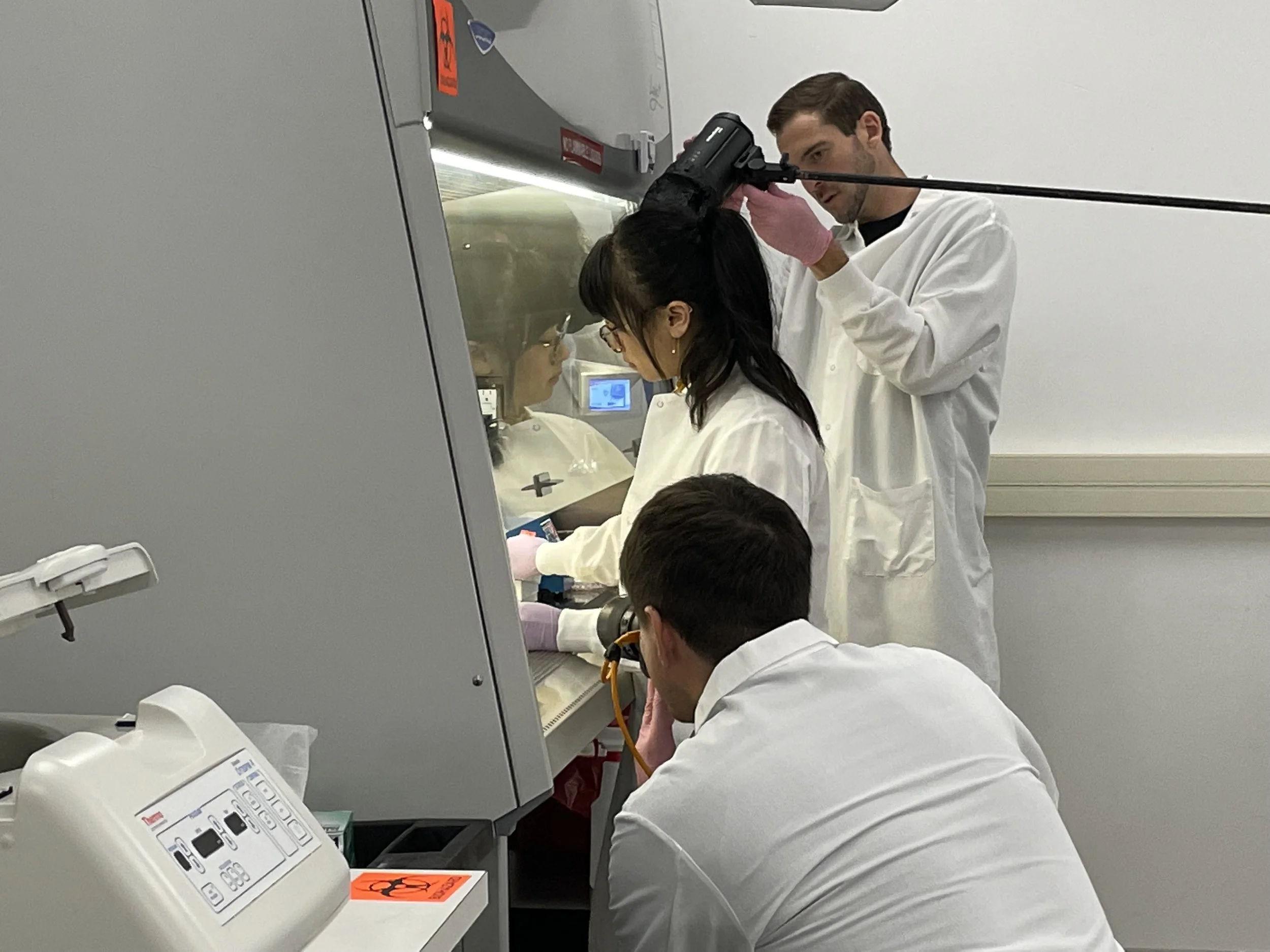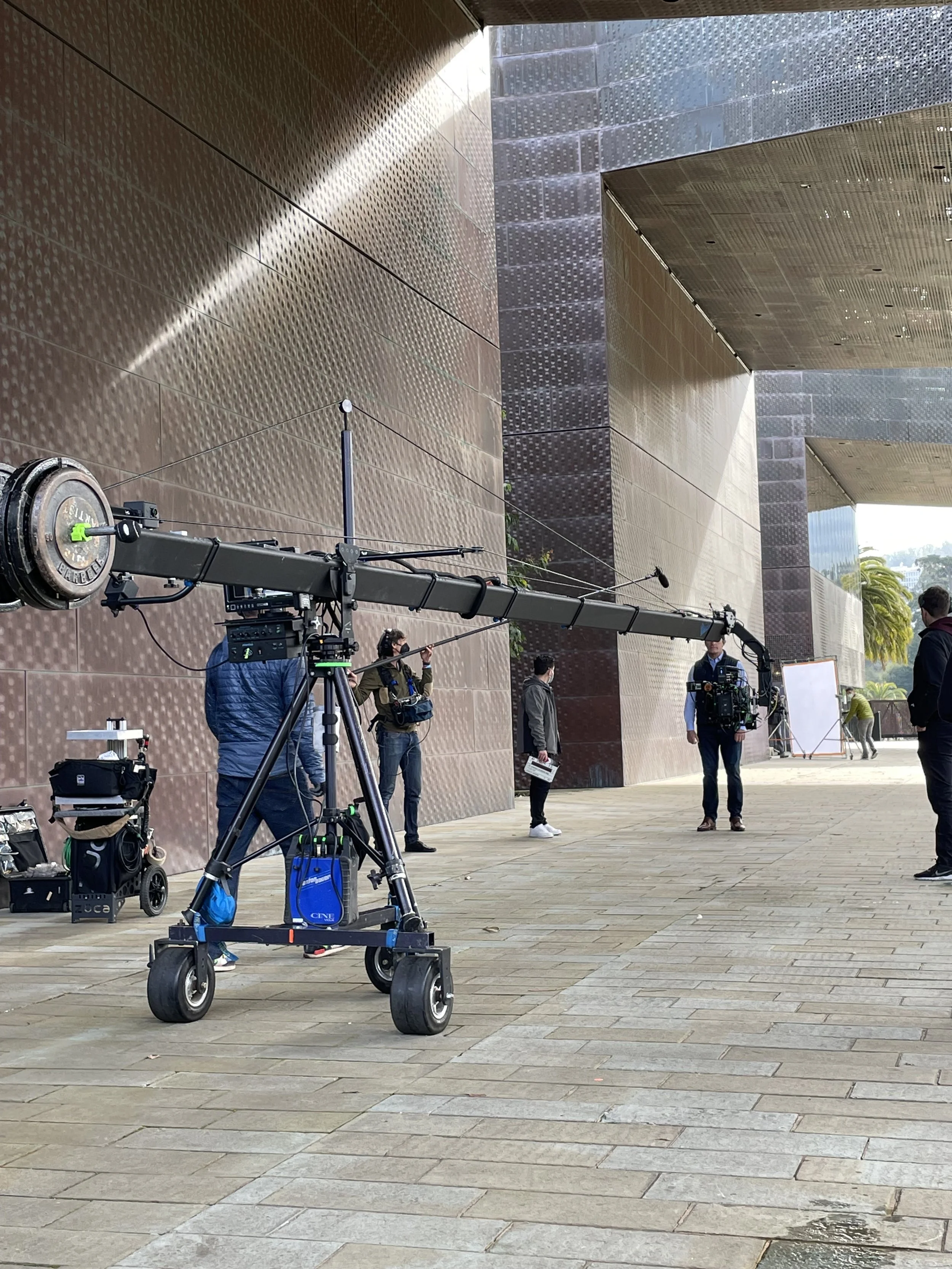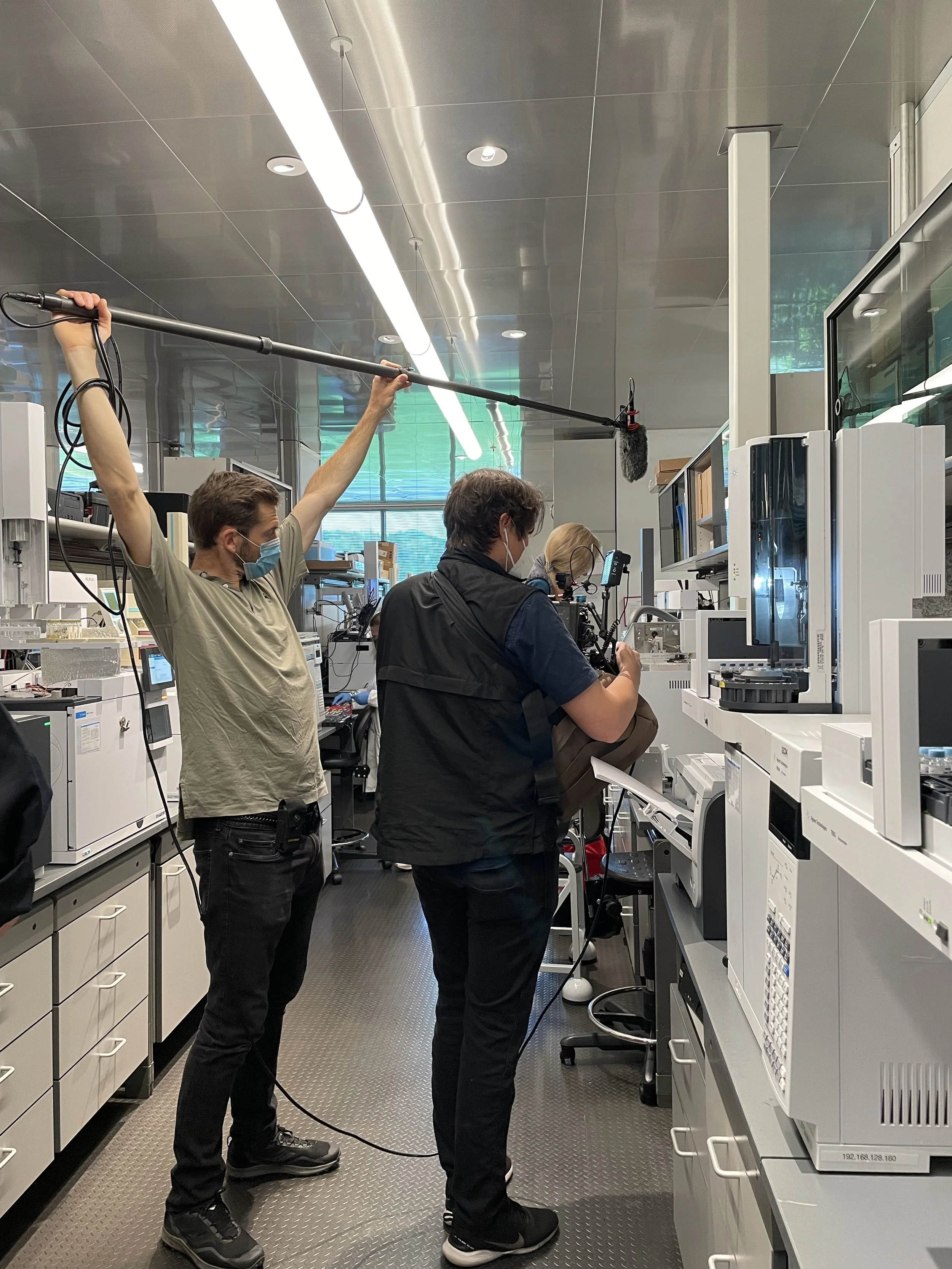So, you’re going to be on camera…
We know. It sounds scary, especially if you haven’t done it before. And it’s normal to be nervous. But we’ve got your back with a ton of experience and a full kit of tools we’ll use to make sure your experience is comfortable and seamless (maybe even fun!).
Here’s what to expect!
If you’re going to be filmed working, interacting with your colleagues, or otherwise going about your day
We’ll give you instructions on what to do– where to walk, for example, or which task to perform– and you’ll likely need to do it multiple times so we can capture a few different angles. So don’t worry about messing it up! We’ll do as many takes as we need to (and you’re comfortable with/have time for), until we have what is needed.
If you’ll be performing a lab or manufacturing task, it’s best to do it with mock reagents and supplies whenever possible so that you don’t need to worry about your real experiments or products. It’s a great idea to prepare by having whatever you need ready before we arrive, including instruments, consumables, (mock) experimental samples and reagents, etc.
You’ll likely be asked to try to ignore the camera. It may seem difficult at first, but it gets easier after a few minutes! Just try to focus on what you’re doing.
If you’re going to be interviewed
We will send a list of interview questions at least a few days prior to filming, so that you’ll have a chance to look over them and think about your responses. There is no need to memorize anything, though– we’ve found that a casual, unrehearsed tone makes for a better video, so you only need to think about the responses in a more general sense. And if there are any questions on the list that you don’t feel comfortable answering, just let us know!
When you walk into the interview space, it’ll already be mostly set up– we’ll just need to do some minor tweaks of microphone and lighting positions so that you look and sound your best. While we do that, we’ll chat with you a bit about our process, answer any questions you may have, and try to set you at ease.
During the interview, you will be speaking face-to-face with one of us as if we’re having a conversation between professional colleagues. You don’t need to worry about editing yourself as you speak– that’s our job! Just keep talking. If you need to repeat something or it needs to be said in a specific way, we will prompt you.
If you’re going to deliver a scripted statement
Delivering a script does NOT mean you need to memorize it! We have a teleprompter device that you’ll read from. Through a variety of optical tricks, the script will appear on a screen in front of the camera lens. As you read, it will seem as though you’re looking into the camera, but you actually won’t see it at all– you’ll feel like you’re just reading the screen.
It’s a good idea to have the script completely finalized at least a few days before the shoot, so that you can practice reading it aloud a few times. This will help the delivery sound more natural (and allow us to get the script file loaded into our teleprompter software ahead of time). But on filming day, don’t worry about flubs! We’ll let you know where to restart a sentence if you need to, and adjust the teleprompter so that you can read it again. We’ll piece the entire story together in post-production editing.
What to wear
Wardrobe is going to be similar, no matter what you’ll be doing on camera. Just wear something you usually would for work, while avoiding white (other than PPE), green, stripes/plaids, busy patterns, or logos (other than your company’s). Anything you choose needs to fit well and be wrinkle-free.
If you have long hair that you need to tie back (but not cover) for the lab, please do so neatly.
More wardrobe advice can be found here.
The main thing to remember
Our goal is to support you in every way we can– and since we consider helping you to feel comfortable and prepared to be just as important as getting the lighting or audio set up correctly, we’ve spent just as much time developing the tools we need to do that! We’re also more than happy to answer questions before the shoot date– just email us at dca@dcasf.com.






